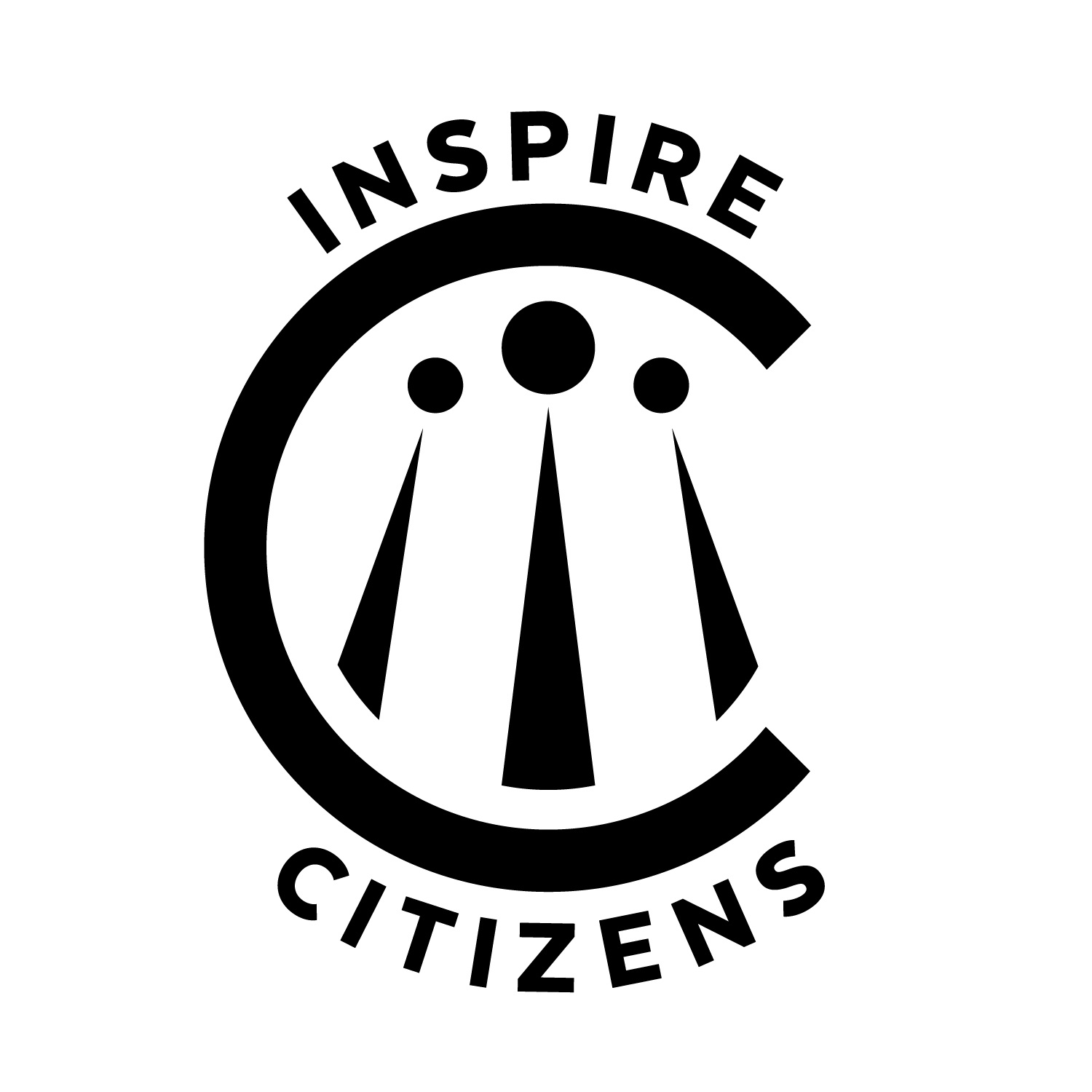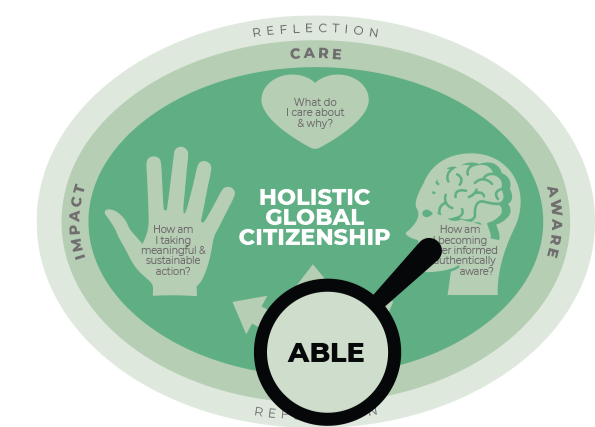PHASE 1
Q: Which knowledge, skills, and understandings will
I develop in this unit/project design?
You will begin by identifying the key knowledge, skills, and understandings students need to successfully explore the world and take meaningful action. This is the foundation of your unit—as we ignite student passions and introduce global issues, we ensure learners develop the skills and knowledge to engage critically, creatively, and compassionately. ABLE aligns with your school’s standards and curriculum while setting the stage for deeper inquiry, purpose, and action in later stages.
Close-up of the “Able” section in the Empathy to Impact framework diagram, highlighting curriculum alignment, learning objectives, and skill development within project-based and experiential learning design.
Before we start the stages of Empathy or Impact, we need to clarify which knowledge, skills, understandings, or learning objectives we are helping students to develop through this teaching experience.
ABLE steps:
Step 1: Unpack your school’s curricular standards here, selecting the academic content and skills to target in your unit/project design:
What disciplinary knowledge or cross-disciplinary skills are essential for this unit? Which of your school’s curricular standards or learning outcomes will guide this unit?Familiarize yourself with your existing curricular learning outcomes and summarize them here.
Step 2: Write Learning Objectives that are clear and student-centered learning goals. Consider including key concepts, vocabulary, skills for inquiry, communication, collaboration, problem-solving, or critical thinking
Extension: Consider readiness and growth and explore principles of Universal Design for Learning when considering your diverse learner population. Reflect on possible pre-assessments and formative assessments of key vocabulary, skills and concepts. You will use this data to scaffold these targets in your lessons
Plan enough time for skill practice, reflection, and feedback
Further guidance:
Co-Curricular, Student Leadership, After School Activities and Experiential Learning.
Whether the learning experience that you’ve chosen is part of the curriculum, part of an advisory program, part of an after school activity, part of a student leadership group or club, or and experiential learning trip, we must identify what the key skills are that we aspire to develop in our students. Clarity and articulation is key in all contexts.
Students might also need to develop other skills and understandings that support their action. For example, if students are planning to host an event to raise awareness about an issue that they care about and build community engagement, they are going to need some skills related to hosting an event. If they are planning to run a workshop, they may need to look at skills involved in designing an interactive learning experience for their audience. If students are doing to collaborate across SES status or successfully navigate intercultural experiences, you may have to identify these supporting skills or non-curricular focused skills to teach and support. You might anticipate 21st century skills like systems thinking, leadership, critical thinking, creativity, futures thinking, communication, among others, with dispositions like empathy, problem-solving, and resilience.
Review the knowledge, skills, and understandings in your unit and familiarize yourself with them because we will actualize them through the next four stages of our Empathy to Impact planning.

